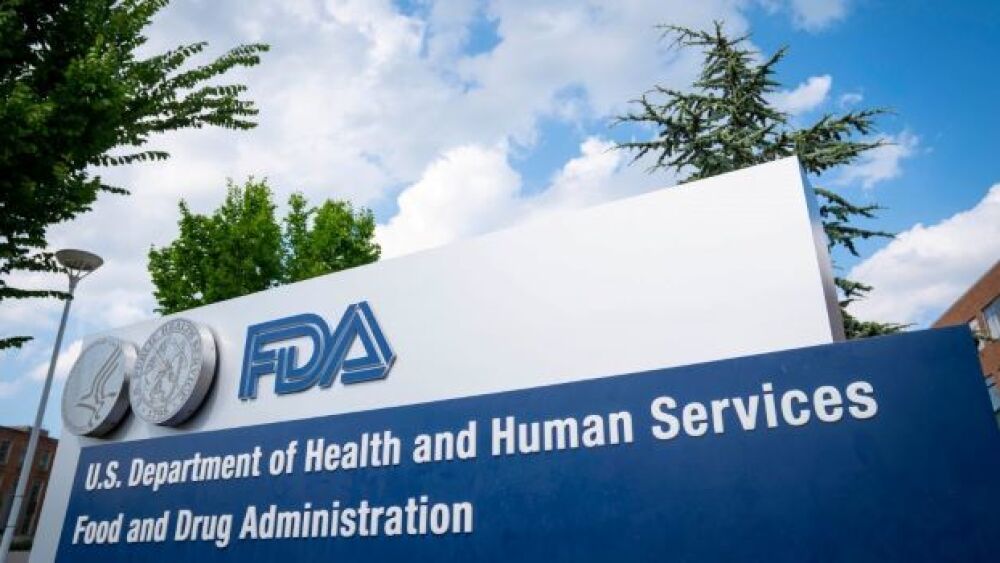The FDA greenlit Reata Pharmaceuticals’ omaveloxolone (Skyclarys) as the first and only treatment for Friedreich’s ataxia, a rare, life-limiting neuromuscular disorder.
Courtesy of Sarah Silbiger/Getty Images
Just in time for Rare Disease Day, patients with a rare neuromuscular disorder got their first medicine as the FDA approved Reata Pharmaceuticals’ omaveloxolone.
Capping off two weeks of suspense and stock swings, the regulator greenlit omaveloxolone to treat Friedreich’s ataxia nearly two hours after the market closed Tuesday. The drug, which will be marketed as Skyclarys, is approved to treat adults and teenagers 16 and older.
Reata’s stock soared by more than 160% in pre-market trading Wednesday following the company’s first FDA approval.
On a conference call Tuesday, Warren Huff, CEO of the Texas-based company, said Reata would engage with the FDA to seek expanded access for Skyclarys for patients under the age of 16, as symptoms often manifest prior to that age.
The annual cost for Skyclarys is $370,000, the company announced.
Reata claimed a Rare Pediatric Disease Priority Review voucher with the approval.
In a prepared statement, Huff called the approval “a transformative milestone.”
He added that Reata looks forward to delivering Skyclarys to eligible patients as quickly as possible.
Susan Perlman, M.D, clinical professor, department of neurology, David Geffen School of Medicine, UCLA, said the approval represents an important step forward in the treatment of Friedreich’s ataxia as it provides physicians with the first disease-specific treatment option for the ultra-rare disease.
Named after the German physician Nikolaus Friedreich, who first discovered it in the 1860s, FA is caused by a trinucleotide repeat expansion in the first intron of the frataxin (FXN) gene, which encodes the mitochondrial protein frataxin. This expansion leads to reduced frataxin expression, resulting in mitochondrial iron overload.
Symptoms, including unsteady posture, difficulty walking and scoliosis typically begin in childhood, with most patients succumbing to the disease by their mid-30s, often from cardiomyopathy. FA affects approximately 5,000 people in the U.S. alone.
Skyclarys activates Nrf2, a transcription factor that helps resolve inflammation by restoring mitochondrial function, reducing oxidative stress and inhibiting pro-inflammatory signaling.
There were some tense moments for Reata shareholders ahead of Tuesday’s decision.
Monday, the abrupt departure of FDA neuroscience head Billy Dunn sent the Texas-based biotech’s stock into freefall as investors worried the move might derail a potential approval.
Dunn is known for his flexibility in approving drugs based on more limited/mixed data for high unmet need conditions, RBC Capital Markets wrote in a note released Monday. Goldman Sachs was more optimistic, arguing that Teresa Buracchio, now acting director of the Office of Neuroscience, shared Dunn’s views.
Ten days earlier, the market swung the opposite way, with Reata’s stock climbing 14% on February 17 in anticipation of a possible approval.
Reata ultimately prevailed on the strength of a registrational, Phase II trial of 103 patients where treatment with Skyclarys led to “significant neurological function compared to placebo.”
Patients treated with the drug had statistically significant lower modified Friedreich Ataxia Rating Scale (mFARS) scores compared to placebo. The mFARS scale, which monitors patient function, is the gold standard assessment tool for FA.
The drug was also generally safe and well-tolerated, according to a 2021 publication of the study in the Annals of Neurology.
While the FDA initially had concerns with the efficacy of omaveloxolone, open-label trial participants reported noticeable improvements.
“It’s a physically exhausting, fatiguing disease,” Jennifer Farmer, CEO of the Friedreich’s Ataxia Research Alliance (FARA), told BioSpace. This is what limits people on a day-to-day basis, she said.
“Many people reported that their symptoms improved such that they could get more done in a day. Fatigue was less of an issue,” Farmer said.
She added that some Skyclarys recipients also reported improved gait, steadiness and upper limb function. “People would specifically note that their disease was not progressing at the same rate [it] had been prior to taking [Skyclarys].”
Up Next
With the first FA approval now on the books, several companies are clamoring to be next.
First up is PTC Therapeutics, whose vatiquinone is being assessed in a Phase II/III study. Vatiquinone is an experimental small molecule that inhibits 15-Lipoxygenase, a primary regulator of the oxidative stress and inflammation response pathways. PTC anticipates data in the second quarter of 2023.
Following closely behind is Larimar Therapeutics, which is in Phase II development with CTI-1601, a recombinant fusion protein intended to deliver human frataxin into the mitochondria of FA patients. The Pennsylvania-based company expects topline data during the second half of 2023.
Calling FA a multi-system, complicated disease, Farmer said “We’ve known for a long time…that we’d need a cocktail approach to really achieve our mission, which is to eliminate or cure FA.”






